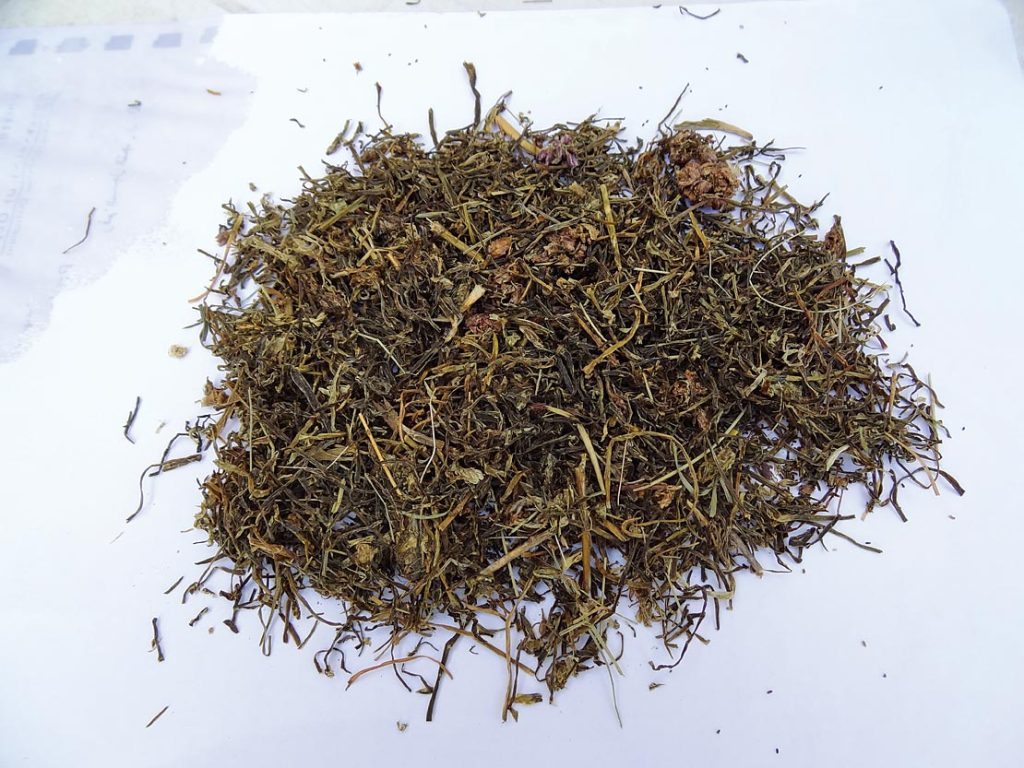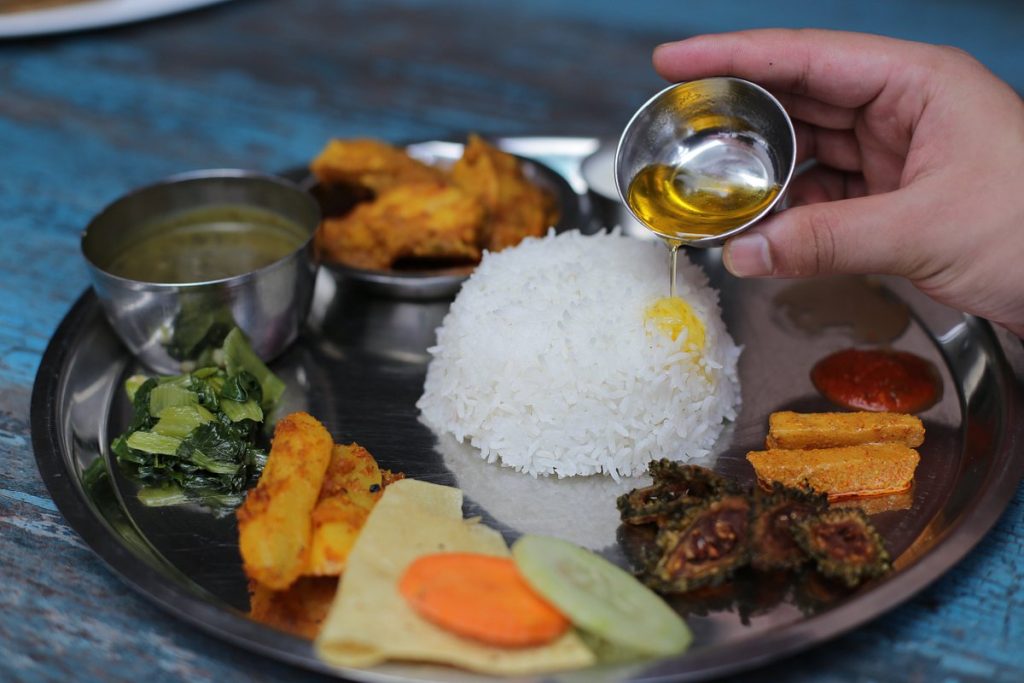Introduction
Jimbu is an herb indigenous to the Himalayan regions of Nepal, India, and Bhutan. It’s a perennial plant belonging to the Allium family, which includes onions, garlic, and leeks. Jimbu is known for its unique aroma and flavor, making it a staple in the traditional cuisines of these regions, particularly in Nepal.
The herb grows in high-altitude areas, typically above 3,500 meters, and is harvested during the late monsoon season when the plant is in full bloom. This extensive piece will explore the numerous aspects of jambu, including their Hindi names, jimbu thakali the Capital Grill, and potential benefits.
Traditionally, It is sun-dried and used as a spice to improve the taste of certain foods. It has a strong, pungent aroma and a taste that resembles a mix between chives and garlic. This distinct flavor profile makes it a cherished ingredient in Nepali kitchens. Beyond its culinary uses, Jimbu is also revered for its medicinal properties, which have been utilized in Ayurvedic and local traditional medicine for centuries.
Jimbu in Hindi
In Hindi, Jimbu is known as ‘jimbu’. It retains the same name in Hindi as Nepali, reflecting its cultural and regional significance. The usage of Jimbu in Hindi-speaking regions is less prevalent than in Nepal. However, it is still recognized and utilized in areas close to the Himalayas, where cultural and culinary practices often overlap.
The herb is integrated into various traditional recipes, particularly in northern India, where the climatic conditions suit its growth. However, it is not as commonly found in mainstream Indian cuisine, which tends to favor other members of the Allium family, such as onions and garlic.
You Can Read More: Jaggery: A Sweet Delicacy with Health Benefits
Health Benefits of Jimbu
It is not only prized for its flavor but also for its numerous health benefits. Traditional healers and practitioners of Ayurvedic medicine have long recognized the herb’s medicinal properties. Here are some of the vital health benefits of Jimbu:

- Antimicrobial Properties: Jimbu has natural antimicrobial properties, which help fight infections. This makes it a valuable herb for treating colds, flu, and other respiratory ailments.
- Digestive Health: The herb aids in digestion and helps alleviate digestive disorders such as bloating, gas, and indigestion. It is often included in dishes that are heavy or rich in fats to promote better digestion.
- Rich in Antioxidants: Jimbu contains antioxidants that help neutralize the body and contain free radicals. This can lessen oxidative stress and cut down on the chance of developing long-term conditions like cancer and heart disease. Such as heart disease and cancer.
- Anti-inflammatory Effects: The herb’s Anti-inflammatory qualities can help lower bodily inflammation, which is advantageous for ailments such as arthritis and other inflammatory disorders.
- Nutrient-Rich: Jimbu is a good source of vital elements, such as minerals and vitamins, including iron, calcium, and vitamins A and C. Mine also like these are necessary to maintain overall health and wellness.
- Cardiovascular Health: Regular consumption of Jimbu lowers cholesterol levels and can help maintain cardiovascular health by improving blood circulation. This, in turn, can reduce the risk of heart-related issues.
- Boosts Immunity: The herb’s immune-boosting properties make it a beneficial supplement to the diet during the cold season or when there is a higher risk of infections.
Jimbu Price in Nepal
The price of Jimbu in Nepal varies depending on the season, quality, and place of purchase. Typically, Jimbu is more expensive during the off-season when the supply is lower. The average price ranges from NPR 1,000 to NPR 1,500 per kilogram. In local markets, smaller quantities are sold for around NPR 100 to NPR 150 for 100 grams.
The altitude and region where it is harvested can also influence the pricing. Jimbu is sourced from higher altitudes, where the growing conditions are more challenging. It tends to be of higher quality and, consequently, is more expensive. Additionally, drying and preserving the herb can impact its market price. Additionally, sun-dried Jimbu retains its natural flavor and potency and is often priced higher than commercially processed varieties.
For local communities in Nepal, Jimbu is not only a culinary staple but also a source of income. Farmers and traders collect and sell the herb, providing many livelihoods in remote mountainous regions. As demand for Jimbu grows locally and internationally, its economic significance will likely increase, benefiting these rural economies.
Jimbu Thakali by Capital Grill: A Culinary Gem in Jhamsikhel
In the heart of Jhamsikhel, amidst the bustling streets and vibrant atmosphere, lies a culinary gem that foodies love and has grown to love quickly: Jimbu Thakali by Capital Grill. This restaurant masterfully blends traditional Nepali cuisine, adding a contemporary touch and creating a memorable dining experience.
A Celebration of Thakali Cuisine
Jimbu Thakali is named after the Himalayan herb “jimbu,” a staple in Thakali cuisine. This herb imparts a unique flavor profile that sets Thakali dishes apart from other regional cuisines of Nepal. The restaurant’s commitment to authenticity is evident in every bite, offering an authentic taste of the Thak Khola Valley’s culinary heritage.
The Menu
The menu at Jimbu Thakali is a testament to Nepali cuisine’s rich flavors and diversity. It provides an extensive selection of meals for vegetarians and non-vegetarians. Signature dishes include:
- Thakali Thali: A traditional set meal that features rice, lentils, a variety of vegetable curries, meat (usually chicken, mutton, or pork), pickles, and ghee. This dish is a staple of Thakali cuisine and showcases the perfect balance of flavors.
- Jimbu Ko Daal: Lentils cooked with jumbo, giving a distinct aromatic, comforting, and delicious flavor.
- Alu Tama: A unique dish made with bamboo shoots and potatoes. It offers a tangy, spicy, genuinely Nepali taste.
- Dhido: A traditional Nepali staple made from buckwheat or millet flour, served with gundruk (fermented leafy greens) and various side dishes.

Additionally, the restaurant is satisfied with employing locally sourced, fresh ingredients, ensuring the highest quality of each dish.
While Jimbu Thakali stays true to its roots, it also introduces modern culinary techniques to enhance the dining experience. The chefs at Capital Grill have reimagined traditional recipes, creating dishes that are both innovative and respectful of their origins. This fusion of tradition and modernity sets Jimbu Thakali apart from other restaurants in the area.
Since its opening, Jimbu Thakali has become a beloved spot for locals and tourists. Its reputation for outstanding food, inviting ambiance, and excellent service has made it a destination for those looking to experience authentic Thakali cuisine in Kathmandu.
Jimbu Thakali by Capital Grill is more than just a restaurant; it celebrates Nepali culture and culinary tradition. Whether you’re a long-time fan of Thakali food or a novice keen to try new tastes, Jimbu Thakali promises a delightful and memorable dining experience.
Conclusion
Jimbu is more than just an herb; it symbolizes cultural heritage and culinary tradition in the Himalayan regions. Due to its role in traditional Nepali and Thakali cuisine, health benefits, and economic significance, It holds a special place in the hearts and kitchens of those who know it.
As global interest in diverse and exotic flavors grows, Jimbu is poised to become a sought-after ingredient beyond its native regions. If you are a culinary enthusiast or interested in natural remedies, Jimbu offers a unique blend of flavor and health benefits worth exploring.
Also Read: Keema Noodles: Exploring the Savory Delight

